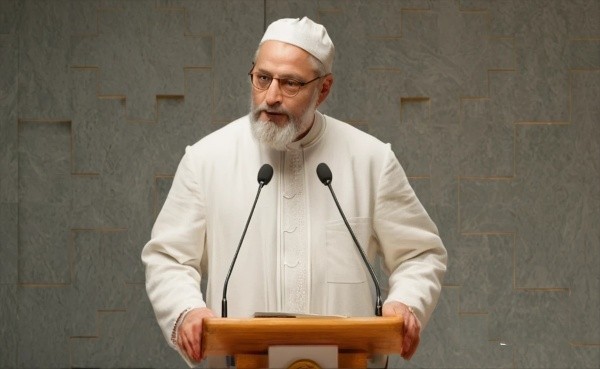Iran’s Plan to Strike Back Against the U.S.
Iran’s Military Preparations Following U.S. Attacks
Loading...

In a dramatic turn of events, the typically mundane swearing-in ceremony for Indian parliamentarians has sparked a heated debate after opposition legislator Asaduddin Owaisi chanted "Jai Palestine" (Long live Palestine) following his oath of office on Tuesday.
Owaisi, a five-time Member of Parliament from Hyderabad and president of the All India Majlis-E-Ittehadul Muslimeen (AIMIM) party, took his oath in Urdu, pledging allegiance to the Indian Constitution. However, it was his subsequent chants of "Jai Bhim, Jai Meem, Jai Telangana, Jai Filisteen" that ignited controversy.
The incident has drawn sharp criticism from members of the ruling Bharatiya Janata Party (BJP), who accused Owaisi of violating the Constitution by demonstrating loyalty to a foreign nation. BJP's IT head, Amit Malviya, suggested on social media that Owaisi could face disqualification from his Lok Sabha membership under Article 102 of the Indian Constitution.
However, political analysts argue that Owaisi's actions do not constitute grounds for disqualification. Hindi professor and analyst Apoorvanand told Al Jazeera, "Hailing Palestine does not violate the Constitution of India. You've taken the oath and after that, if you say anything, it's not on record."
The controversy has highlighted the tense political atmosphere following India's recent national election, where Prime Minister Narendra Modi's BJP failed to secure an outright majority for the first time in a decade but formed a coalition government.
Owaisi was not the only MP to stir debate during the ceremony. BJP member Chhatra Pal Singh Gangwar ended his oath with "Jai Hindu Rashtra" (Long live the Hindu nation), drawing protests from opposition lawmakers who view the slogan as contradictory to India's secular constitution.
In a symbolic gesture, several opposition legislators, including Congress leader Rahul Gandhi, took their oaths while holding copies of the Indian Constitution. This move was seen as a protest against alleged excesses of the BJP government under Modi.
Prime Minister Modi responded by accusing the Congress party of hypocrisy, pointing out that Tuesday also marked the anniversary of the 1975 national emergency imposed by then-Congress Prime Minister Indira Gandhi, during which civil liberties were suspended and critics arrested.
The oath-taking ceremony, typically a formality, has thus become a microcosm of India's complex political landscape. As Apoorvanand noted, "This battle is continuing and has not ended with the declaration of results."
The incident has reignited discussions about freedom of expression, constitutional obligations, and the delicate balance between national loyalty and international solidarity. It remains to be seen whether any formal action will be taken against Owaisi, as Parliamentary Affairs Minister Kiren Rijiju has reportedly stated that the rules regarding oath-taking will be reviewed.
As India's new parliament begins its session, the controversy surrounding Owaisi's remarks serves as a reminder of the ongoing political tensions and the challenges facing the world's largest democracy. The incident has sparked a broader debate about the nature of parliamentary conduct and the limits of political expression in India's diverse and often divided political landscape.
Editor
Iran’s Military Preparations Following U.S. Attacks
Troops remain in five strategic locations, raising fears of renewed tensions and long-term occupation.
Opposition forces have taken control of the capital after a significant offensive. Here is how it unravelled.
